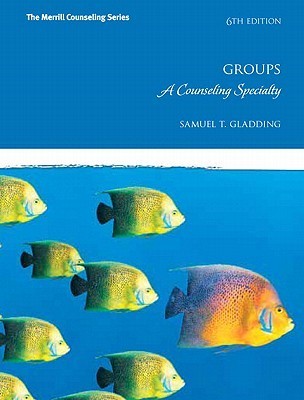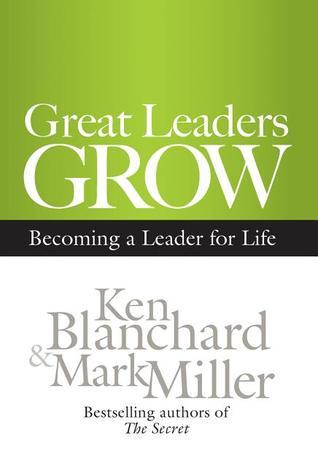Subscribe to Read
Sign up today to enjoy a complimentary trial and begin exploring the world of books! You have the freedom to cancel at your convenience.
The dragon of the Ishtar Gate
| Title | The dragon of the Ishtar Gate |
| Writer | |
| Date | 2025-04-19 08:12:18 |
| Type | |
| Link | Listen Read |
Desciption
1st Donning edition. Near fine condition with some dust spotting at the upper page block. Review copy with publisher's letter laid in. Letter has tanning along the edges. Cover art by Stephen Fabian.
Review
I’ve read one of de Camp’s other historical novels, An Elephant for Aristotle, and, while I enjoyed it, I found the writing style irritating beyond belief. To represent the different dialects of Greek he chose to use extremely colloquial British regional dialects, placing most of the characters in a sort of ridiculous Scots brogue or equally silly-sounding (Scottish Greeks!) accent. I disagreed with the decision he reached, but I understood at least the rationale behind it. This book, I thought, shouldn’t have anything like the same problem since it has only Persians to deal with and none of the complications imposed by Greek dialects.Would that that were so. This book has found an even more frustrating way of obfuscating any sort of dialogue. The book is told in an awful mix of archaic English and what I can only describe as pseudo-ancient Fantasy claptrap. De Camp wrote several Conan novels and I suspect the style is similar. Have you ever heard the term blackguard used in a sentence? How about fain? Wench? Knaves? Churl? Boon? Affright? Liefer? Meed? Wist? Scot? Thews? Dost “beshrew me” flow trippingly off thy tongue? If not, prepare for a bumpy ride. Normally I don’t judge a book too harshly for its chosen writing style, but the artificiality and obtuseness with which this novel chooses to tell its story makes it impossible to forget or adjust to.To turn to the plot, the basic idea of the story is that the Great King Xerxes, King of Kings, Ruler of Iran and Non-Iran, the King of the World, the Achaemenid, wants an elixir of eternal life and one of his wizards (of course there are more than one!) has a recipe for him that requires the blood of a dragon, the ear of a king, and the heart of a hero. The last requirement in particular bodes ill for the party who is expected to retrieve the other two. That party consists of the Greek Myron, who is remarkably up-to-date on natural philosophy for someone uprooted from his Milesian home at an early age, and the Bactrian (Afghani) knight Bessas. This pair is sent across the empire, down the Nile, and into the Congo to collect this dragon, under threat of the murder of Bessas’ mother. Because apparently the only difference between Persians and comic book villains is that the latter are slightly more flamboyant. Or, given 300, maybe it’s the other way around... Myron at least is eager to go (for science!), but you’d think that pretty much anybody would be a better choice than a man whose mother you have to threaten to get him to do his job. Especially since it seems everyone wants him dead badly enough to send goons halfway across the world to hunt him down.I am noticing a definite pattern to de Camp’s historical writings: the man must have loved traveling because all of his stories have the goal as getting from point A to point B and sometimes back. Journey stories can be interesting. Indeed, I found his An Elephant for Aristotle mostly so. But they are also highly repetitive by nature. Unless some continuing subplots are added within the party, the book becomes just a list of place-names with some descriptions of traveling in between. This book feels like a collection of short stories tied together only by the shared characters. Having them pursued from the beginning by a series of bad guys seems intended to unify the quest, but this quickly devolves into just having paid assassins turn up in each city to be defeated by some quick knife work. More repetition, and a far-fetched one at that. There is some rearrangement of party structure to freshen things up, but little truly changes and I never really cared for the secondary characters anyway.Perhaps that would be fine if the description of the places visited was vibrant like a travel guide, but alas it’s nothing special. I’ve seen the Ishtar Gate in Berlin, so I have a clear visual of it, but without that I’d have no real impression of what it looked like when they visit it here. The glazed cerulean blue of the walls, the brilliant gold inlays, the pale form of animals in profile extruding from the wall in rows, the long procession street flanked with towers and lazy guardsmen pacing around on top... That’s more of a description than we get here. de Camp tends to lean towards a clipped, technical precision rather than emotion, and that’s the wrong tone to take when establishing atmosphere. I have even less of an impression of the city of Babylon proper, and that’s probably the most atmospheric city they pass through.The book was also just uncomfortably full of petty and outdated Orientalisms, especially the constant references to everyone being slaves. This comes from the Greek practice of indifferently blending all sorts of different obligations within Persia under the umbrella term “slavery”. Most forms of “slavery” in the Persian Empire were more akin to serfdom or feudal obligations than chattel slavery, which was much less common than in Greece. You’d never guess that here. Perhaps this isn’t really a fair criticism since de Camp could only rely on the research available in his own time (most of the best work on Persia has been written since the ‘80s). It would be like criticizing him for not following the currently accepted chronology for the development of monotheism in Judaism or the transfer of the capital of Nubia from Napata to Meroê. But it is still intensely frustrating to see the uniqueness of Persia used for nothing more than to add exotic coloring to a generic effete warrior race.Once we get into Africa the casual racism takes a dark turn. I know this is the ‘60s and people then were not known for their tact in racial matters and nor, with their almost fetishization of the virtues of (Western) civilization, could they be expected to sympathize with native tribesmen, but even for the era the descriptions of Africans is pretty appalling. Those of Kush and south are invariably referred to as “blacks” (the only people to be so explicitly racialized) and that term is often used as a form of abuse. It goes so far that Myron is actually repulsed by the appearance of African women because of their skin color. This isn’t a negative social attitude inherent to the time (like the acceptance of slavery) but something imported from a modern racialized outlook. The division of the world into broad racial types (caucasian, negroid, mongoloid) was a concept that developed gradually out of Modern European imperialism. It wasn’t present in the Classical era where the Greeks felt no more kinship with Celts than with Persians. And the Persians were the same way. It was ethnicity that mattered, not race. You know what the Greeks called the Persians? Barbarians. You know what they called the Kushites? Barbarians. Not “Blacks”. Jesus.There is something unspeakably ugly about much of this book. Moreso even than most modern grimdark novels where you’re not really meant to like the protagonists. Not long after leaving Kush we get this delightful line: “But, my lord, she is only a woman, a slave, and a black! What is the fate of such a contemptible creature to me?” This comes from one of our “heroes” as he prepares to butcher a sex slave he purchased rather than set her loose when it’s clear she can’t keep up with the party. This behavior is treated as a Bad Thing (though the attempted murderer is still “not a bad lad”), but why in God’s name does it appear at all? It burned away all sympathy I might have towards any of the people involved (who had otherwise been fairly likable), yet they remain our heroes! I am receptive to the argument that we should present the evils of the time as they were rather than as we want them to be (though if that's what's happening here, that desire is noticeably absent when dealing with anything supernatural) but the constant harping on about sex slavery and female subjugation is prurient rather than documentary and represents everything I loath about the sword-and-sorcery genre.Essentially, you can color me unimpressed verging on angry. I was looking forward to an adventure set in the Persian Empire (a surprisingly uncommon setting for historical novels!) in the reign of the Great King Xerxes, King of Kings, Ruler of Iran and Non-Iran, the King of the World, the Achaemenid. But what I got was a travel guide to the south-western reaches of the Persian Empire and beyond. The story was far too sword-and-sorcery for my taste and the writing style was just puerile. Quests to recover magical artifacts? Seeking buried treasure? Evil wizards? Mad cannibals who regularly butcher four or five of their own nobles a day? The rescuing of (the only white) buxom maiden in distress? No thanks. I don’t care for those tropes even in my full-out Fantasy novels. The book does improve after we get through the earlier stretch. Conan-speak seems to be his chosen dialect for Persia only and once we leave the empire dialogue becomes a little less forced. The plot loosens up as well and I actually found myself enjoying some of the post-Persian chapters. But the book has not aged well, and the superior and dismissive way in which it deals with ancient cultures is frustrating. If I had to summarize: it’s a well-researched story of exploration and discovery told in a childish way for fans of pulp fantasy. And that’s a waste.




